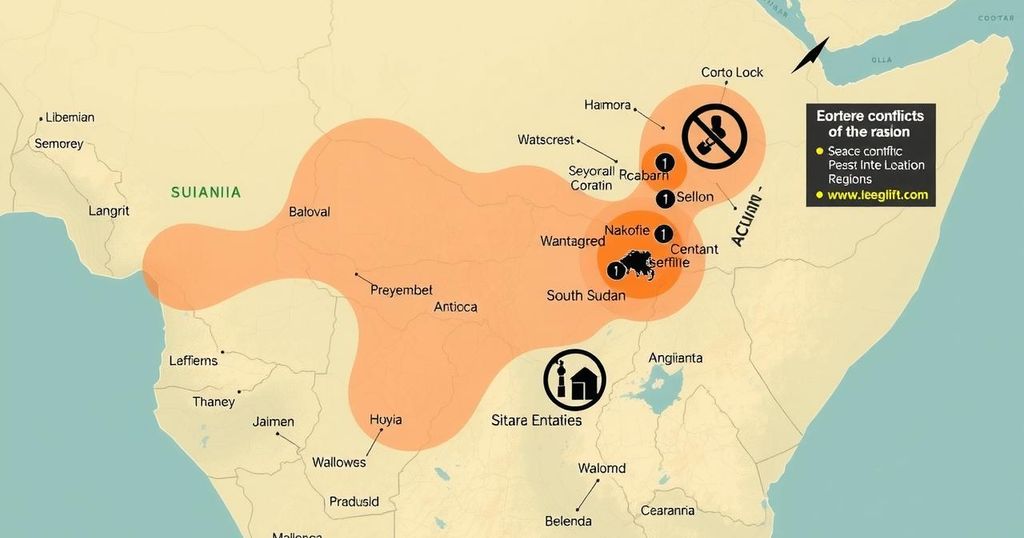The article outlines the worsening security situation in South Sudan due to rising tensions between SPLM and SPLM-IO, leading to fears of a return to civil war. A recent militia attack has resulted in civilian casualties and massive displacement. Political upheaval underscores the urgency for peace, as the UN and international entities strive to restore stability amidst a dire humanitarian crisis affecting millions. Widespread cooperation and commitment to peace are essential to avert disaster.
The security situation in South Sudan is deteriorating due to rising tensions between the two dominant political factions: the Sudan People’s Liberation Movement (SPLM) led by President Salva Kiir Mayardit and the Sudan People’s Liberation Movement in Opposition (SPLM-IO) led by First Vice President Riek Machar. This turmoil threatens to plunge the fragile nation back into civil war, raising urgent concerns for national stability.
On March 4, a militia called the White Army seized control of barracks previously held by the South Sudan People’s Defense Forces (SSPDF). In retaliation, AIRFORCE bombings targeted civilian areas in the Upper Nile region, using incendiary devices. These attacks have resulted in multiple fatalities, severe injuries, and the displacement of approximately 100,000 individuals from their homes.
The escalation of violence in Upper Nile raises alarm as the White Army and SSPDF reportedly increase their military mobilization, including allegations of child recruitment. Tensions further escalated on March 24, when skirmishes erupted between SSPDF forces and those affiliated with SPLM-IO in Juba, heightening fears within communities of a widespread conflict similar to that experienced during earlier civil wars in 2013 and 2016.
Amid these events, political upheaval is notable as various military and civilian officials of SPLM-IO have faced detainment or have gone into hiding, with Riek Machar reportedly placed under house arrest on March 26. Nicholas Haysom, head of the UN peacekeeping mission in South Sudan, emphasized the urgency of the moment, stating that the nation is “teetering on the edge of a relapse into civil war.” The UN and international partners continue to advocate for adherence to the Revitalized Peace Agreement to restore stability.
Diverse international entities such as UNMISS, the African Union (AU), and the Intergovernmental Authority on Development (IGAD) are engaged in diplomatic initiatives aimed at preventing an outbreak of war. Success in these efforts hinges upon the willingness of the involved parties to commit to peace dialogues. The UN Secretary General called for decisive action from South Sudan’s leaders, urging them to prioritize the welfare of their citizens by putting down their weapons.
Since gaining independence from Sudan in 2011, South Sudan has faced substantial challenges, including political strife that led to civil war shortly thereafter. The humanitarian crisis remains dire, with over nine million individuals requiring assistance—a staggering 75% of the population. The situation has worsened due to the influx of refugees and returnees from neighboring Sudan as well as rampant inflation and economic instability. The UNMISS mission aims to prevent the resurgence of civil war while fostering self-reliance and paving the way for democratic governance and humane electoral processes.
In summary, South Sudan is at a critical juncture as political tensions increase, risking a relapse into civil war. The urgent need for peace and stability is underscored by ongoing violence and the humanitarian crisis affecting millions. International efforts led by organizations such as the UN are focused on restoring and implementing the Revitalized Peace Agreement to avert further conflict while emphasizing the importance of cooperation and peace among South Sudan’s leaders.
Original Source: peacekeeping.un.org




